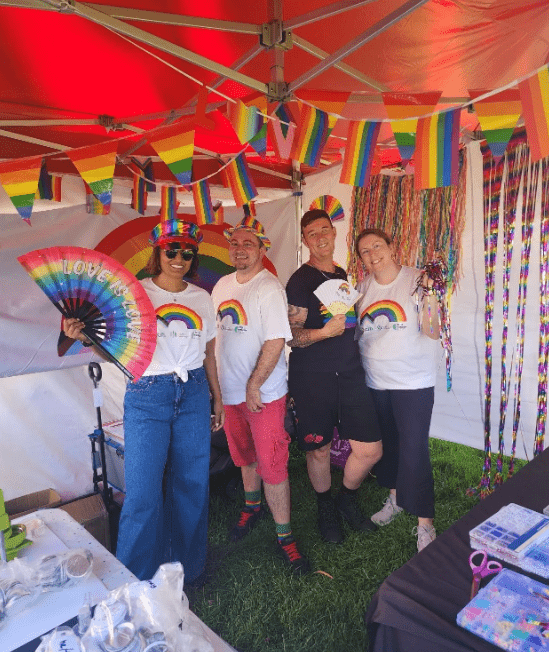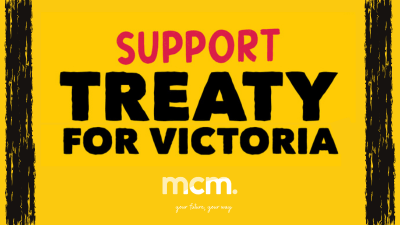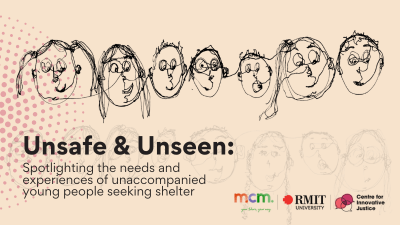- About
- Services
- Advocacy
- Support us
- News
- Publications
- Careers
- Contact
MCM Group is committed to diversity, equity of access and inclusion, and has a long history of supporting disadvantaged and marginalised people. MCM is committed to ensuring everyone we work with is safe, empowered, supported and respected, especially children and young people. We support and celebrate diversity of race, culture, faith, ability, class, age, neurodiversity, sexuality and gender identity.
Our On For Inclusion strategy was launched in September 2023, and sets out our five year plan to enhance and promote safety and inclusion for our workforce and the people we support.
This work is grounded in MCM’s Healing Oriented Framework, which prioritises safety, dignity, wellbeing, connectedness and self-determination
MCM is committed to working with First Nations Peoples towards positive pathways of their choice. We approach this work with respect and recognition of First Nations’ Peoples as the Traditional Owners/Custodians of the lands on which we live and work. We acknowledge that we perform this work within a context of the continuing impacts of colonisation on First Nations’ Peoples and acknowledge their resilience, strength, pride and desire for self-determination.
MCM affirms its commitment to reconciliation and celebrates the strengths that come from the world’s oldest continuing Cultures, as well as working to address systemic and individual injustice. We recognise the length of MCM’s history in Victoria, within a settler colonial system that has caused and continues to cause significant disadvantage to the First Peoples in Australia. We further recognise that all our services take place on the unceded land of First Nations’ Peoples.
We take on the responsibility for listening and responding to First Nations’ Peoples within our communities and workplaces. We are actively working to embed First Nations’ voices into all levels of our decision-making. We are excited about learning and growing through greater understanding and celebration of First Nations’ Cultures, Communities and Peoples.
We actively encourage partnerships with First Nations-led, owned and/or operated organisations. Our key contact for anyone interested in exploring this opportunity is our Strategy, Outcomes and Innovation team, which can be contacted at info@mcm.org.au
Read our Reconciliation Action Plan (2021-2023)
Download our RAPAbout the Artwork
Mandy Nicholson is a custodian of Wurundjeri country of the Kulin Nation. This piece tells the story of the Wurundjeri people, their connection to the land and to healing, utilising traditional symbolism. The ochre circles represent gathering places and the divisions of MCM, coupled with the artist’s contemporary view which interfaces with the use of fingerprints as a representation of the unique interconnecting services MCM delivers on this country, leaving an everlasting imprint.
 Photo: MCM Group stall at Midsumma
Photo: MCM Group stall at Midsumma

MCM welcomes lesbian, gay, bisexual, trans and gender diverse, intersex, queer, asexual plus (LGBTIQA+) people at our workplaces, services and programs. We understand that identifying as part of the LGBTIQA+ community increases the likelihood of poor social, economic and health outcomes, including homelessness. It also impacts on perceptions and experiences of accessing services for LGBTIQA+ people.
MCM treats people of all sexual orientations, gender identities and intersex variations with dignity and respect. We collect information on a person’s gender identity, sexual orientation and intersex variation to ensure that our service provision is holistic and meets the unique needs of LGBTIQA+ people. As with all data collection, storage, use, sharing and destruction, our practice is governed by relevant legislation, and guided by our Privacy Policy.
LGBTIQA+ identifying staff and allies from across MCM Group participate in our Rainbow Committee, leading initiatives such as MCM’s participation in Midsumma Carnival and Pride March, and commemorating days of significance throughout the year.
At MCM, we recognise that people’s cultural identity, language, and beliefs are central to who they are; and vital to feeling safe, respected, and valued. We are committed to building a workplace and service environment where everyone’s heritage and worldview are acknowledged, and where diverse voices are part of every conversation.
Inclusion means more than representation, it means removing barriers, challenging bias, and creating meaningful opportunities for people of all backgrounds to thrive.
Our approach includes:
We’re working towards a future where MCM is known as a place where all cultures, languages, and beliefs are not only welcomed, but also celebrated.
We recognise that economic empowerment of women, non-binary, gender fluid, gender queer, agender and bigender people has many flow-on effects to their families and communities. Economic independence is a factor that can create opportunity for people to escape family violence, to better care for children in their families and communities, to perform volunteer work, manage the rising cost of living, and retire without entering into poverty.
At MCM, we are committed to achieving gender equity across our workforce, including addressing the gender pay gap. We believe all employees - regardless of gender - should be fairly recognised and rewarded for their contributions.
MCM will continue to advocate for systems that support people with marginalised lived experience, including women, non-binary, gender fluid, gender queer, agender and bigender people, to have equity of access to all human rights such as housing, food security, effective health services (including palliative care services), education and employment. We recognise that pay equity is a significant contributor to equity of access to these rights.
MCM upholds the value of equity of access for all members of its workforce. We work actively to ensure that marginalised gender status is not reflected in salary levels and is not a barrier to employment opportunities, including but not limited to recruitment, promotion, salary increase, and positive appraisals of work performance.
What is the gender pay gap?
The gender pay gap is the difference in average or median earnings between women and men in the workforce. It reflects broader issues of inequality and opportunities in the workplace.
Our actions to reduce the gender pay gap:
Our commitment:
The Human Resources team is further addressing the gender pay gap within MCM by developing an Enable Goal with actions to be completed in 2025.
At MCM, we recognise that closing the gender pay gap is critical to creating a truly inclusive and fair workplace.
MCM Group Gender Pay Gap (GPG) figures compared to the national average
| MCM Group 2024/25 | National Average 2023/24* |
| Average total remuneration GPG | |
| 3.5% | 21.8% |
| Median total remuneration GPG | |
| -0.4% | 18.3% |
| Average base salary GPG | |
| 3.4% | 16.7% |
| Median base salary GPG | |
| 0.2% | 13.6% |
(Note: these figures are based on annualised full-time equivalent earnings for all employees, including part-time, casual and part-year employees)
* Figures sourced from WGEA and are from the 2023-24 reporting period. 2024/25 figures not yet available.
A positive percentage indicates men are paid more on average than women in the organisation. A negative percentage indicates women are pain more on average than men.
We seek to have proportionate representation of gender within our organisation and teams, including leadership teams. This is part of our commitment to ensuring all MCM services are delivered by a skilled and diverse workforce.
At MCM, we are on a journey to strengthen neurodiversity-affirming approaches as part of our broader commitment to inclusive practice. Multiple surveys of our workforce have shown that we have a significant proportion of neurodivergent folk who choose to work with MCM. This gives our workplace culture the strength and vibrancy from embracing the diverse perspectives that neurodiversity brings. By centring the voices of neurodivergent people and working to reduce systemic inequities, we are laying the foundations for a safer, more equitable, and affirming environment.
We are guided by these overarching principles, which are taking shape as we learn and develop in this emerging space:
While there is still more to do, our goal is for neuroinclusion to be meaningfully woven into the everyday experiences of our people, reflected in our programs and services, and present in the communities we work alongside.
Inclusion for people with disability starts with listening. At MCM, we’re committed to creating spaces where people of all abilities are treated with dignity, supported to thrive, and empowered to lead.
We know that people with disability face systemic barriers to participation: from employment and service access, to communication and representation. That’s why we’re embedding accessibility into everything we do.
Our priorities are:
Our vision is to build a truly inclusive organisation - one where disability is not seen as a limitation, but recognised as part of human diversity.
 |
 |
 |

Everyone is welcome at MCM

MCM proudly supports the Treaty process being led by the First Peoples’ Assembly of Victoria and Traditional Owner Groups.

A new report by the RMIT Centre for Innovative Justice, in partnership with MCM, shines a light on the experiences of young people who leave home to escape violence without a parent or guardian.